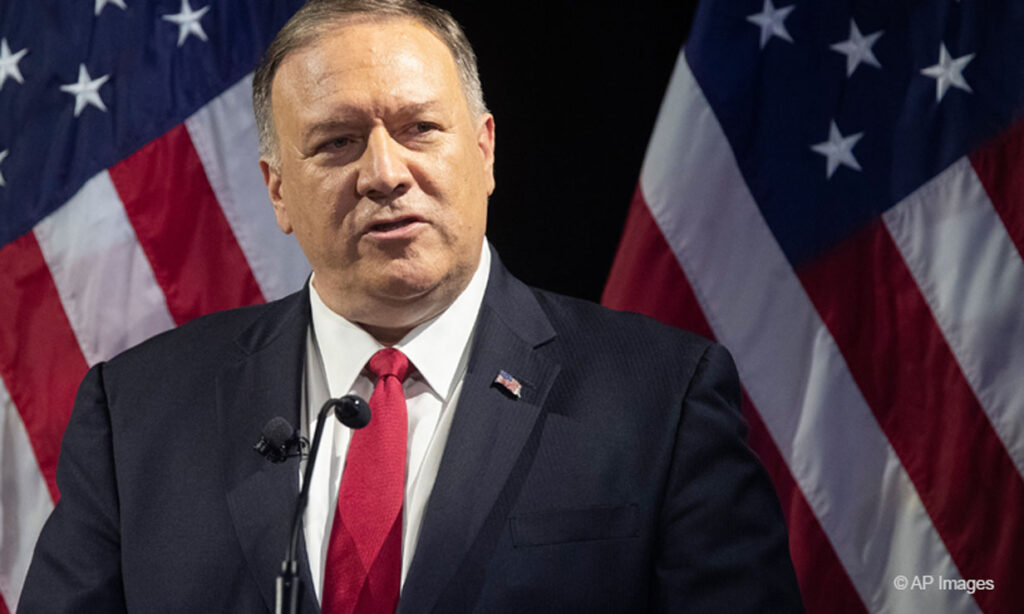While all American and international media ignored this important story involving Mike Pompeo, the CIA, and Julian Assange, a newsletter that supports whistleblowers reported on it.
The Dissenter Newsletter, which posts about cases of whistleblowers and their struggle against governments and corporations, stood out for its first-hand reporting when its journalist Kevin Gosztola reported the update on last year’s story of a lawsuit brought against the CIA and its former director Mike Pompeo.
Last year, the lawsuit by two American journalists along with a couple of attorneys against the CIA and its former head Mike Pompeo made headlines in some major media outlets. The four Americans claimed that CIA under Pompeo spied on them when they visited Wikileaks publisher Julian Assange in 2017 and 2018 at the Ecuadorian embassy in London, where Assange had been granted asylum. A video of an attorney representing the plaintiffs serving Pompeo the lawsuit papers at an event made rounds on Twitter/X in November 2022.
The media quickly went quiet on the case with no follow-up stories or discussions about the issue in any news shows. But on November 19, Gosztola reported on what he called ‘a rare court hearing” held on November 16 before Judge John Koeltl of the Southern District of New York. The hearing was held for the case against CIA and Pompeo and revealed an interesting and important point about privacy rights of Americans.
Gosztola wrote that Assistant U.S. Attorney Jean-David Barnea, who represents the CIA and Pompeo in the lawsuit, declined to either confirm or deny that the CIA had targeted American citizens without obtaining a warrant. This was the defense attorney’s response to Judge Koeltl’s direct question whether his client, the government, concedes that no warrant was obtained for the surveillance because it was not needed. When the judge pressed on him for a clear answer on the question of warrant, Barnea answered that he was not at liberty to comment about it.
Barnea also contended that Americans visiting Assange at the embassy of Ecuador in London did not have the privacy rights that they otherwise enjoy back home within America.
Barnea, who represents the CIA and Pompeo, contended that the Fourth Amendment right to privacy under the U.S. Constitution did not apply at the Ecuador embassy in London.
Concluding the hearing, Judge Koeltl asked the plaintiff’s attorney to submit an “amendment letter” to add the point of the warrant’s relevance to the case. The next hearing of the case is expected in the second week of December.
A large number of conservatives have come to assume a critical opinion of Mike Pompeo since his role in siding with the intelligence community against the advocates of freedom to information became obvious over the years. In a recent interview with Tucker Carlson, President Kennedy’s nephew and presidential candidate for 2024 Robert Kennedy Jr. shared a discussion he had with Pompeo over dinner. According to Kennedy Jr., Pompeo admitted that he did not do what he should have done when he was the head of the CIA and that the top leadership at the agency does not believe in the Democratic Institutions of the United States of America.
